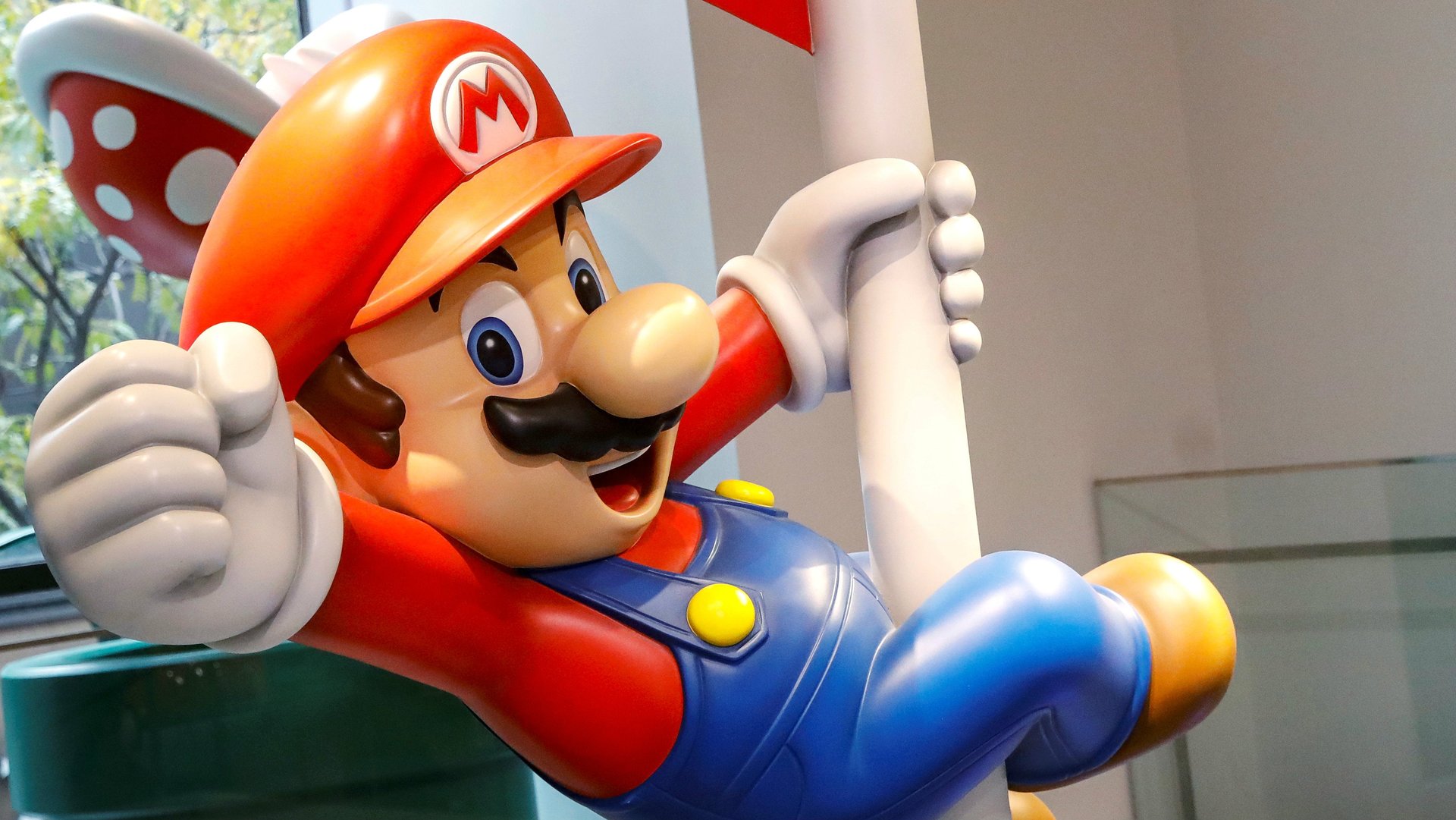Nintendo is trying to make inroads in China’s big gaming market by giving Mario over to a rival
Foreign companies will often make sacrifices just to do business in China and gain access to billions of consumers. For Nintendo, that means handing out one of its signature titles to a rival.


Foreign companies will often make sacrifices just to do business in China and gain access to billions of consumers. For Nintendo, that means handing out one of its signature titles to a rival.
That rival is Nvidia, the chipmaker that dabbles in gaming and that released its Shield TV set-top box in China this week. According to Nvidia’s Chinese site, among the titles that consumers can play on it are three old titles from Nintendo—The Legend of Zelda: Twilight Princess, New Super Mario Bros. Wii, and the retro Punch-Out!!
Giving some of its signature titles to a rival console maker marks a major shift for Nintendo. The company has typically kept games with its most famous characters—Mario, Zelda, Donkey Kong, and others—available only on its in-house consoles. This has ensured that gamers eager to play a new version of Mario Kart can only do so if they buy a Nintendo machine. It has only recently begun releasing gaming titles for the iPhone—such as Super Mario Run (which flopped) and Pokemon Go (which exploded). Yet letting Mario grace TV screens powered by a non-Nintendo marks an extremely rare move for the Kyoto-based firm.
The titles’ release come as Nintendo faces pressure to grow revenue and profits. Over the past several years, its financials have taken a hit as consumers abandon console gaming in favor of smartphones. To date, an overwhelming majority of Nintendo’s revenue comes from physical hardware and software sales. The Nintendo Switch has generated rave reviews and promising sales. But the smartphone boom has affected the console industry as a whole, meaning that either the Switch must help Nintendo rebound, or it will have to rethink its closed-in strategy.
Meanwhile, China marks an opportunity for Nintendo. The country’s gaming market is valued at $24 billion, and the overwhelming majority of it comes from PC and mobile gaming. A long-lasting ban on consoles, which was lifted in 2015, prevented Nintendo, Sony, and Microsoft from reaching consumers there. Now Nintendo has a new chance at winning over Chinese gamers. But while the PlayStation 4 and Xbox One have gone on sale in China, the Nintendo Switch has yet to hit store shelves.
Partnering with Nvidia might help Nintendo get its titles in front of Chinese consumers quicker and more effectively than if it waited for the Switch’s official Chinese release (if that ever happens to begin with). It also puts Nintendo in the company of Nvidia, which has partnered with several government-friendly Chinese companies, as well as Baidu, which powers the voice assistant in the Chinese Nvidia Shield. Meanwhile, last September, Nintendo reached an agreement to distribute a hit title from Chinese game maker Tencent overseas (paywall). These sorts of relationships can sometimes help foreign companies gain better market access in China.
Console gaming remains extremely new in China—to date, it represents only about 1% of all digital gaming revenue. To crack China, Nintendo will need a hefty power-up.